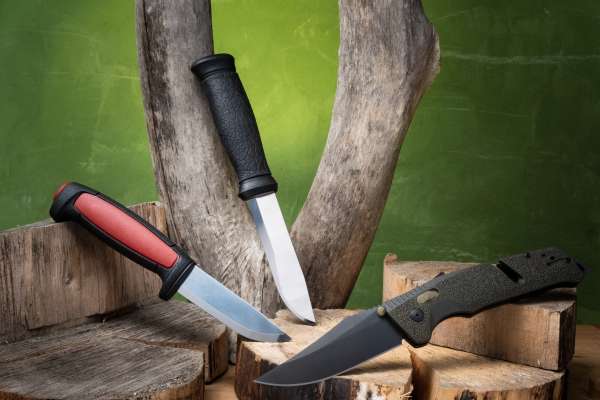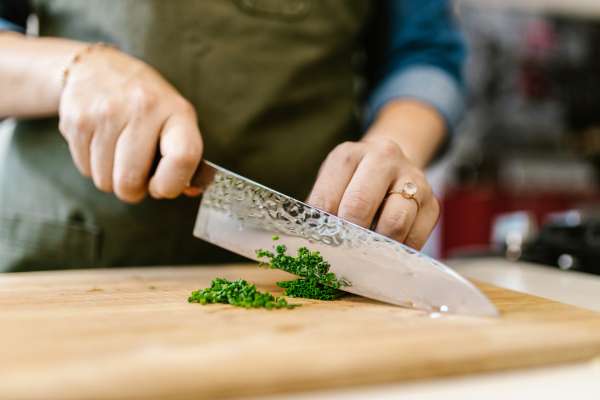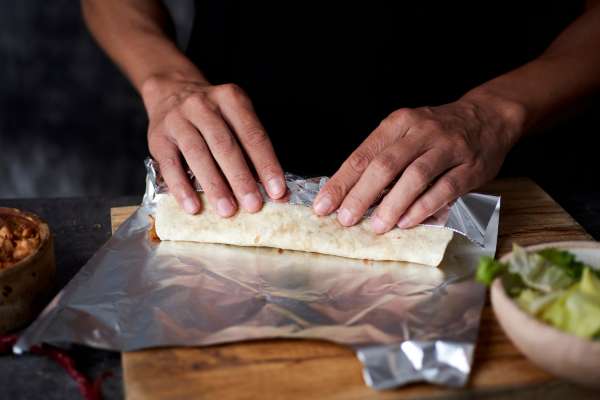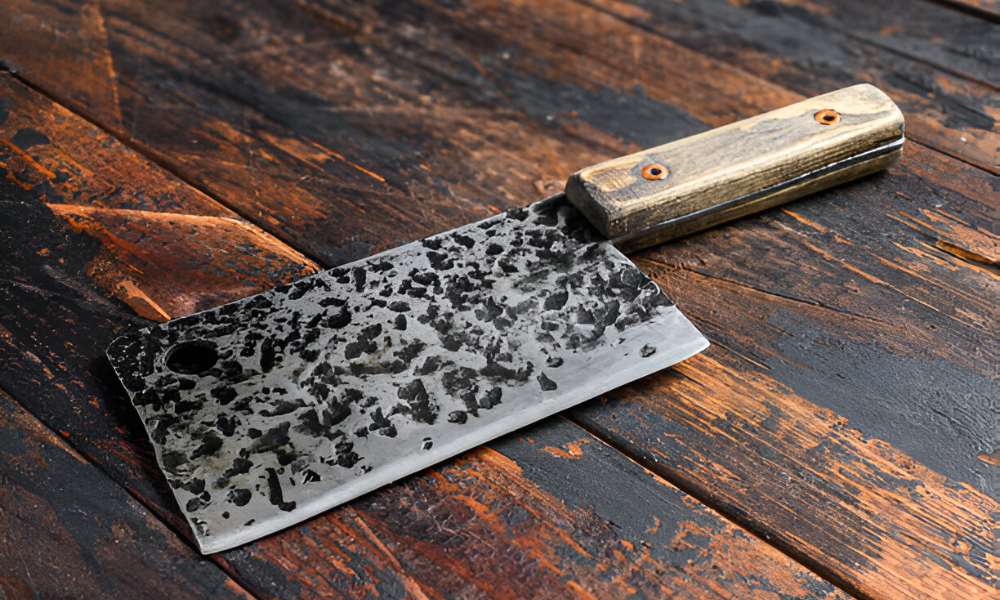Discovering how to effectively get rust off knives stainless steel is essential for maintaining their longevity and performance. Rust not only mars the appearance of your kitchen essentials but also poses risks to food safety and usability. Learning the right methods empowers you to restore your knives to their optimal condition, ensuring they remain sharp and durable for precise cutting tasks. In this comprehensive guide, we delve into proven techniques and tips to safely remove rust from stainless steel knives, providing you with the expertise to preserve and protect your kitchen tools effortlessly.
How Often Should I Clean Rust Off Knives?

It is recommended to clean rust off knives as soon as it appears to prevent further damage to the blade. Regular maintenance is key to keeping your knives in good condition and ensuring they remain sharp and effective for longer. Depending on how frequently you use your knives and the conditions they are exposed to, you may need to clean off rust more often.
Can I Use Steel Wool To Remove Rust?

Yes, steel wool can be an effective tool for removing rust from metal surfaces. The abrasive nature of steel wool helps to scrub away the corrosion and reveal the bare metal underneath. To use steel wool for rust removal, simply apply a corrosion remover solution or some vinegar to the corrosion area and then scrub with the steel wool in a circular motion. Be sure to wear gloves and protective eyewear while doing this to avoid any injuries.
Is It Safe To Use Vinegar On Stainless Steel?
Yes, it is generally safe to use vinegar on stainless steel surfaces. Vinegar is a natural and non-toxic cleaner that can effectively remove dirt, grime, and even some stains from stainless alloy. However, it’s important to use vinegar in moderation and always dilute it with water to prevent any potential damage or corrosion to the stainless alloy surface.
Create A Vinegar Solution
To effectively remove rust from stainless steel knives, a vinegar solution is an excellent method. Start by mixing equal parts of white vinegar and water in a container large enough to submerge the knives. The acidity of the vinegar helps dissolve the corrosion, making it easier to scrub off. Place the knives in the solution and let them soak for about 30 minutes. After soaking, use a soft sponge or cloth to scrub the rusted areas gently. Rinse the knives thoroughly with water and dry them immediately to prevent further rusting. This simple and natural method is not only effective but also safe for maintaining the quality of your alloyknives.
Apply The Solution To The Knife

Once your vinegar solution is ready, the next step is to apply the solution to the knife. If the rust is localized to specific areas, you can soak a cloth or sponge in the solution and apply it directly to the rust spots. For more extensive corrosion, submerging the entire blade in the solution for about 15-30 minutes will allow the vinegar to penetrate and loosen the corrosion. Be sure to handle the knife carefully during this process to avoid any accidents.
Scrub And Rinse
Scrub and Rinse are essential steps in maintaining sharp kitchen knives at home. To ensure a safe and effective sharpening process, it is crucial to start with a clean blade. By scrubbing off any debris or residue on the knife, you create a smooth surface for sharpening. Rinse the knife under running water to remove any remaining particles and prevent them from interfering with the sharpening process.
Using Lemon And Salt
For a natural and effective way to get rust off knives stainless steel, try using lemon and salt. This method utilizes the acidic properties of lemon juice combined with the abrasive action of salt to break down and remove corrosion. Start by sprinkling a generous amount of salt over the rusty areas of the knife. Then, cut a lemon in half and rub it over the salt-coated corrosion spots, allowing the juice to mix with the salt. The acidity of the lemon juice will react with the corrosion, making it easier to scrub away. Let the lemon and salt mixture sit on the knife for about 5-10 minutes before scrubbing with a soft cloth or sponge. Rinse the knife thoroughly with warm water and dry it completely. This natural remedy is both eco-friendly and effective in restoring your stainless steel knives to their original shine.
Baking Soda Paste
A baking soda paste is another great option for removing rust from stainless alloy knives. Baking soda is a mild abrasive that can effectively lift rust without damaging the metal. To make the paste, mix baking soda with a small amount of water until you achieve a thick consistency. Apply the paste to the rusted areas of the knife using a soft cloth or sponge. Let it sit for about 15-20 minutes to allow the baking soda to work on the corrosion. After the waiting period, gently scrub the rusted spots with the cloth or sponge, then rinse the knife thoroughly with water. Ensure the knife is dried completely to avoid further corrosion formation. This method is particularly advantageous for dealing with more stubborn corrosion patches and is both safe and easy to use.
Aluminum Foil And Water

Aluminum foil is surprisingly effective at removing rust due to its ability to create a mild abrasive action without scratching the steel. Start by tearing off a small piece of aluminum foil and dipping it in water. Then, gently rub the wet foil over the rusted spots on the knife. The combination of water and aluminum foil will help to break down the corrosion and lift it off the surface of the stainless alloy. After scrubbing, rinse the knife under warm water to wash away any rust residue. Finally, dry the knife thoroughly to prevent moisture from causing new rust spots. This method is quick, easy, and can be done with materials you likely already have at home.
Using Commercial Rust Removers
For those who prefer a more straightforward approach, using commercial rust removers can be an efficient way to get rust off stainless steel knives. These products are specifically formulated to tackle corrosion and are available in various forms, such as sprays, gels, and creams. To use a commercial corrosion remover, carefully follow the instructions provided by the manufacturer. Typically, you will need to apply the product to the rusted areas, let it sit for a specified period, and then scrub or wipe off the corrosion. Be sure to wear protective gloves and work in a well-ventilated area to avoid inhaling any fumes. After the corrosion is removed, wash the knife thoroughly with soap and water, and dry it completely. Using commercial corrosion removers can save time and effort, making it an excellent option for those dealing with severe corrosion on their alloy knives.
Maintaining Knife After Rust Removal

After successfully removing rust from your stainless steel knives, it’s crucial to maintain them properly to prevent future rusting. Start by always drying your knives immediately after washing them to avoid moisture buildup, which can lead to rust. Store your knives in a dry place, preferably using a knife block or magnetic strip, to keep them off damp surfaces. Regularly apply a thin layer of mineral oil or specialized knife oil to the blade to create a protective barrier against moisture and corrosion. Additionally, avoid cutting through acidic foods or leaving your knives in the sink for prolonged periods. By following these maintenance tips, you can ensure your stainless alloy knives remain rust-free and in excellent condition for years to come. Proper care and maintenance will enhance the longevity and performance of your knives, keeping them sharp and rust-free.
The Final Thought
Removing rust from stainless steel knives can be a simple and effective process when using the right methods. By utilizing materials such as white vinegar, baking soda, or a commercial rust remover, you can restore your knives to their original state. It is important to remember to always dry your knives thoroughly after cleaning them to prevent rust from forming again. Regular maintenance and care of your stainless alloy knives will help prolong their lifespan and keep them looking as good as new. Take the time to invest in proper cleaning techniques for your knives today and enjoy the benefits of sharp, rust-free blades for years to come.

